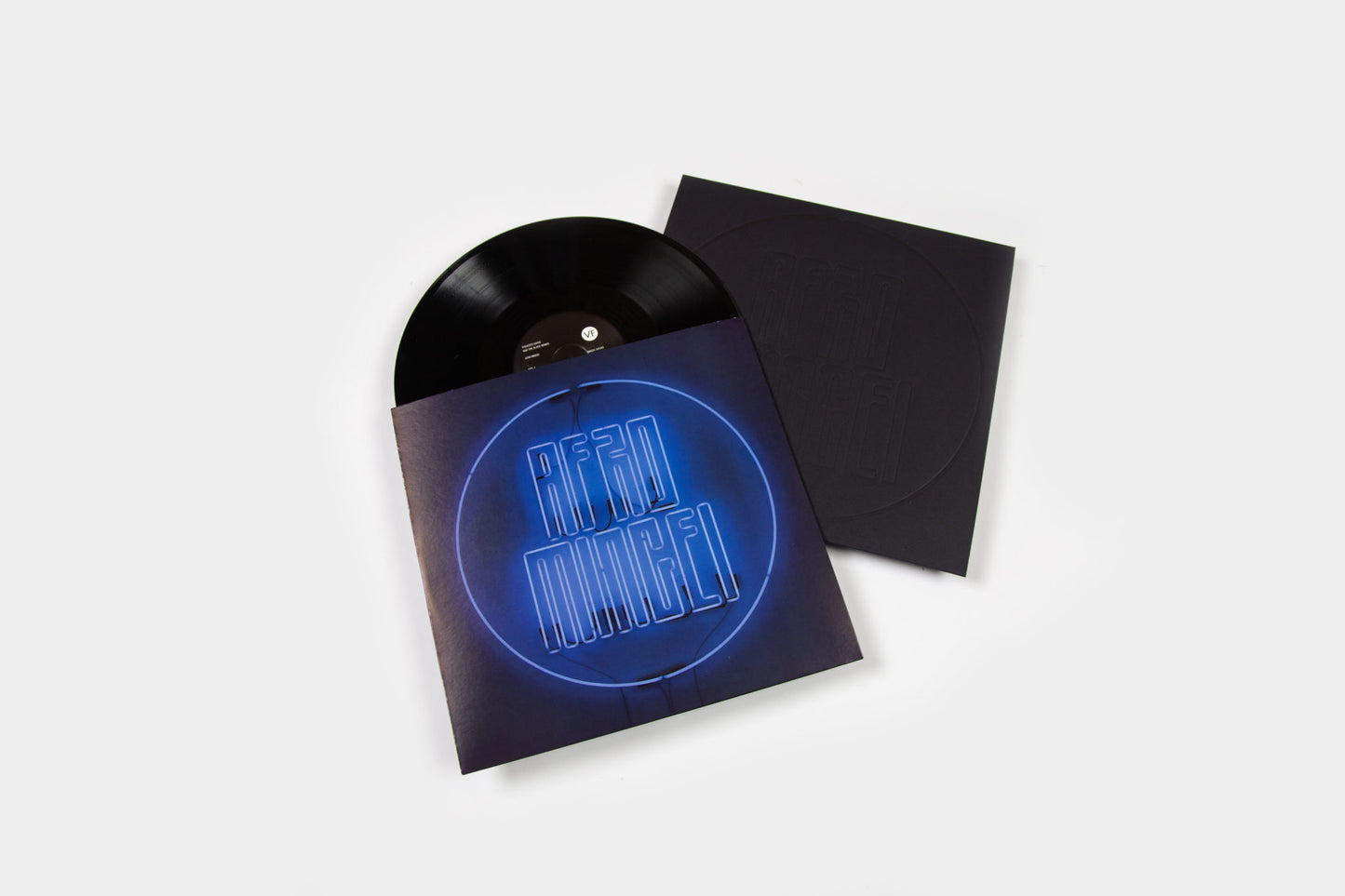The Vinyl Factory
Theaster Gates & The Black Monks - Afro-Mingei
Theaster Gates & The Black Monks - Afro-Mingei
Couldn't load pickup availability
* Live performance by Theaster Gates and The Black Monks (Yaw Agyeman, Mikel Patrick Avery, Michael Drayton)
* Recorded at White Cube, Masons Yard, London, Friday 24 May, 2019
* Pressed on 180-gram heavyweight black vinyl
* B-side etching of Afro-Mingei artwork
* Outer sleeve blind embossed, printed on perfect image black
* Inner sleeve features an image of Storefront Sign 2018, Neon, by Theaster Gates
* Limited edition of 750
Gates’s practice poses nuanced questions about cultural production as a means to foreground a new type of cultural hybridity.
In the 2019 exhibition, Afro-Mingei, which took place at White Cube, Masons Yard, London, where this live recording took place, two key strands of his work – Japanese philosophy and Black identity – combined to forge a new aesthetic; one that attempts to retrace cultural roots that are often submerged and forgotten within the structure of what Gates terms ‘Western-White sameness’.
The title of the exhibition deliberately blurs and brings together distinct cultural identities, each with their own rich history of aesthetics.
The term ‘Afro’ refers to both African-American culture as well as to its iconic hairstyle, re-appropriated during the 1960s and 1970s by Black post-civil rights leadership as a symbol of Black identity and empowerment.
The Japanese term mingei, coined by philosopher and cultural figure Soetsu Yanagi, along with potters Shoji Hamada and Kanjiro Kawai, denotes folk or craft objects made by local, unknown craftsmen.
For Yanagi, craft challenged conventional ideas of art and beauty since it evolved from traditional practices where the divisions between art, philosophy and religion had merged or disappeared. It is within this thematic framework that Gates introduces a series of objects, installations and interventions in the exhibition that address different ways of looking.
Incorporating various elements from Japanese culture such as sakazuki and tatami, with elements from Black culture such as African masks and a Hammond B3 organ, made popular by jazz players and 1960s soul musicians, they highlight hybridity as a pathway for new conceptual exploration.
Share

















